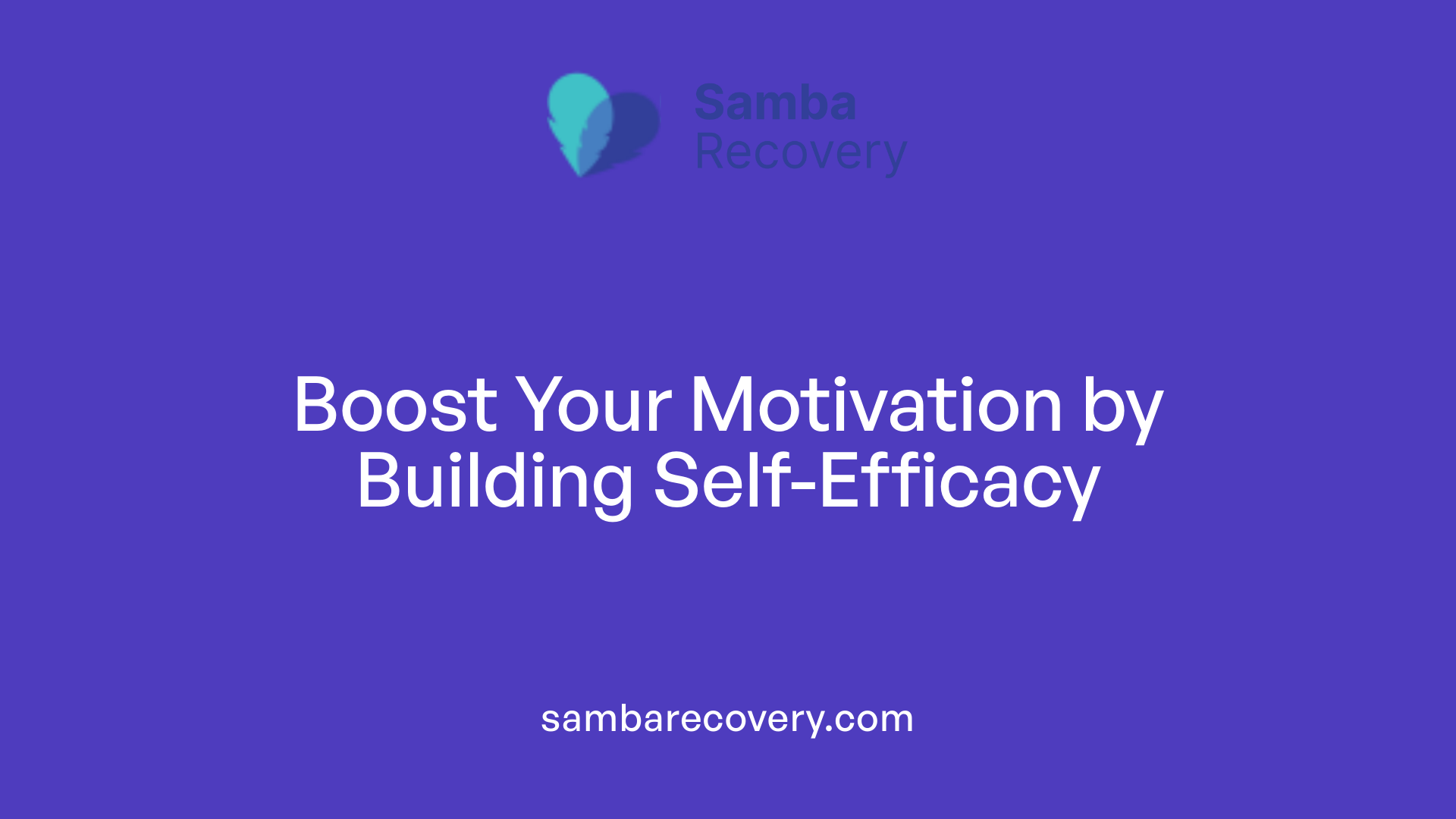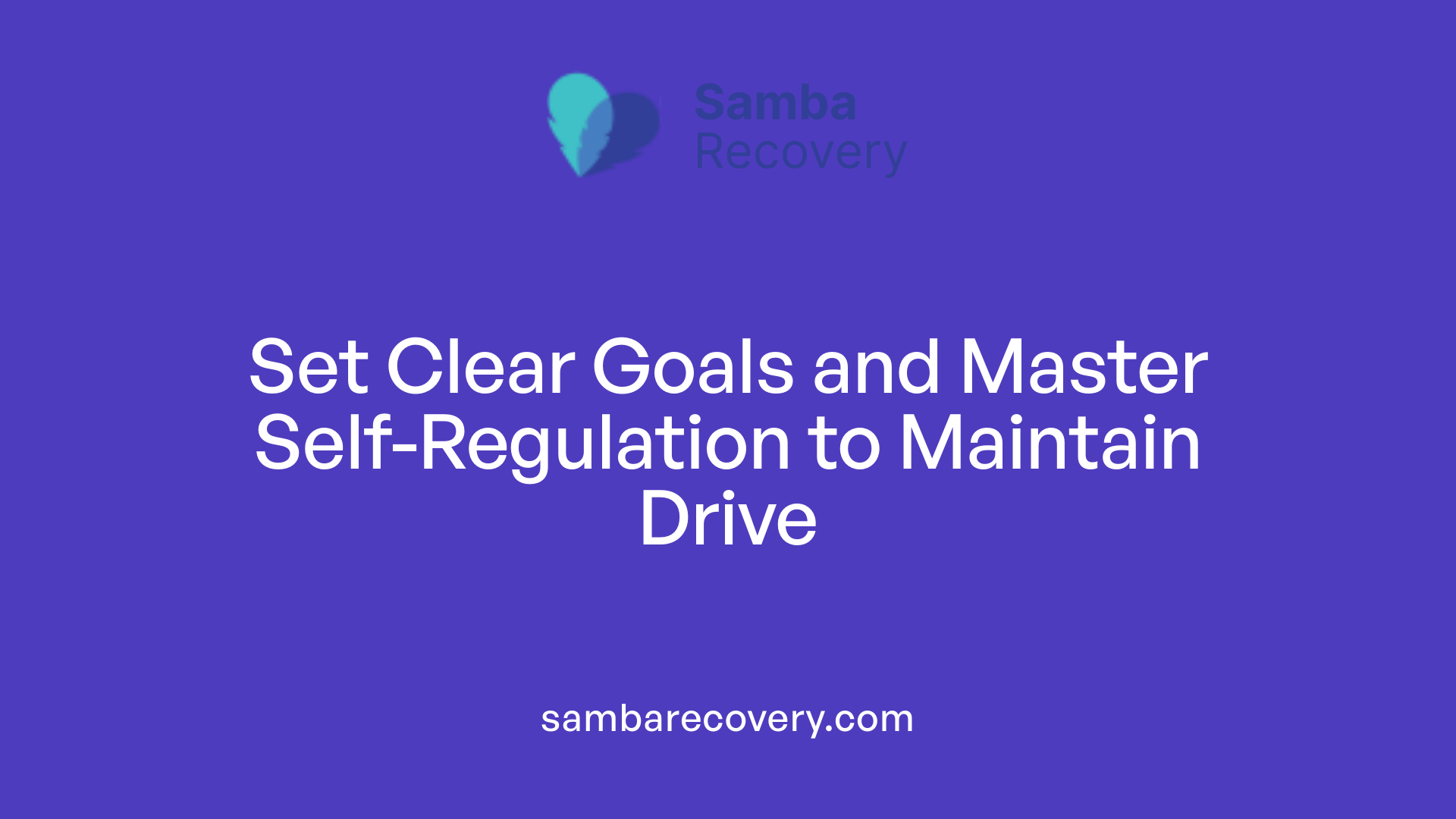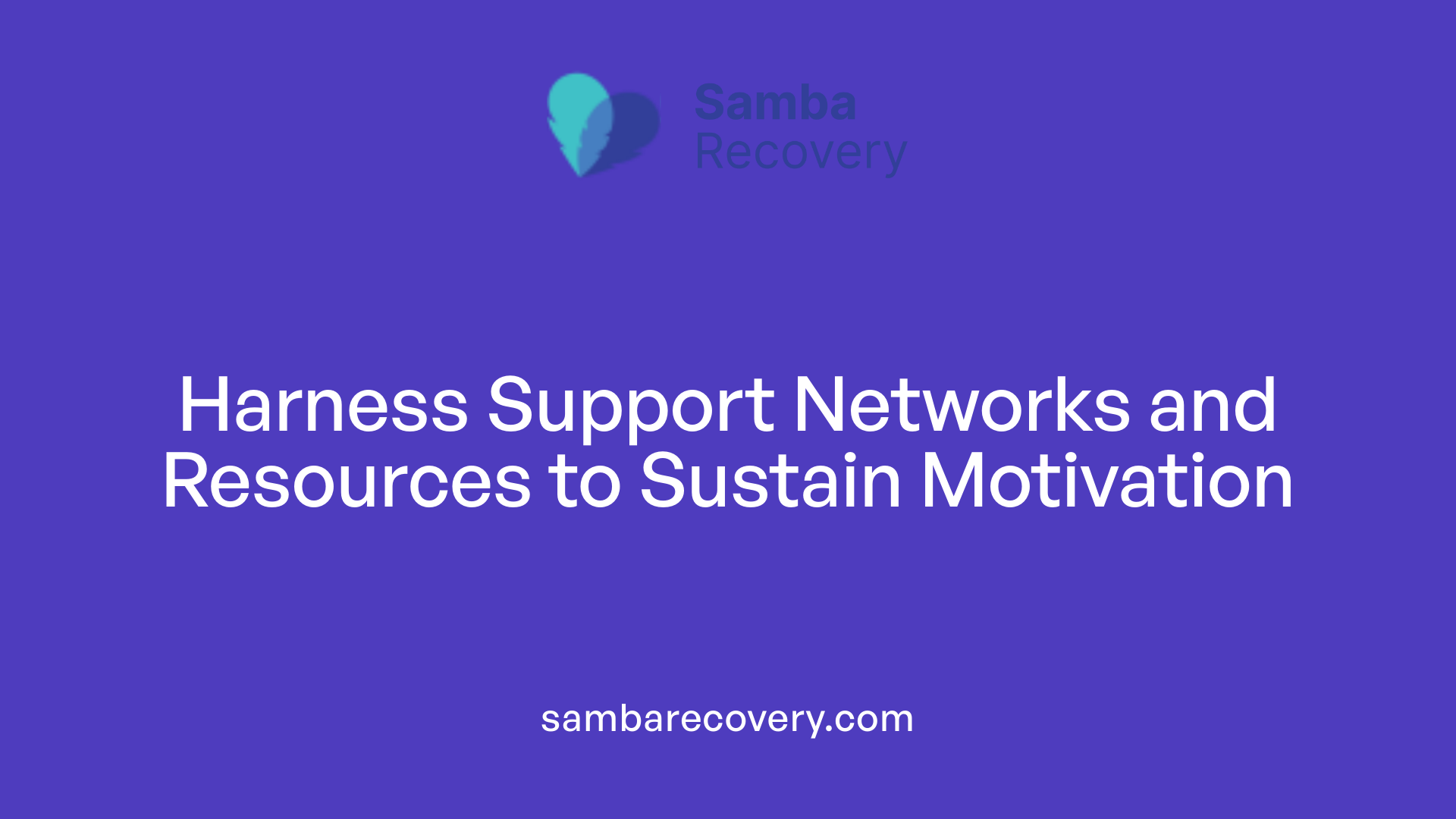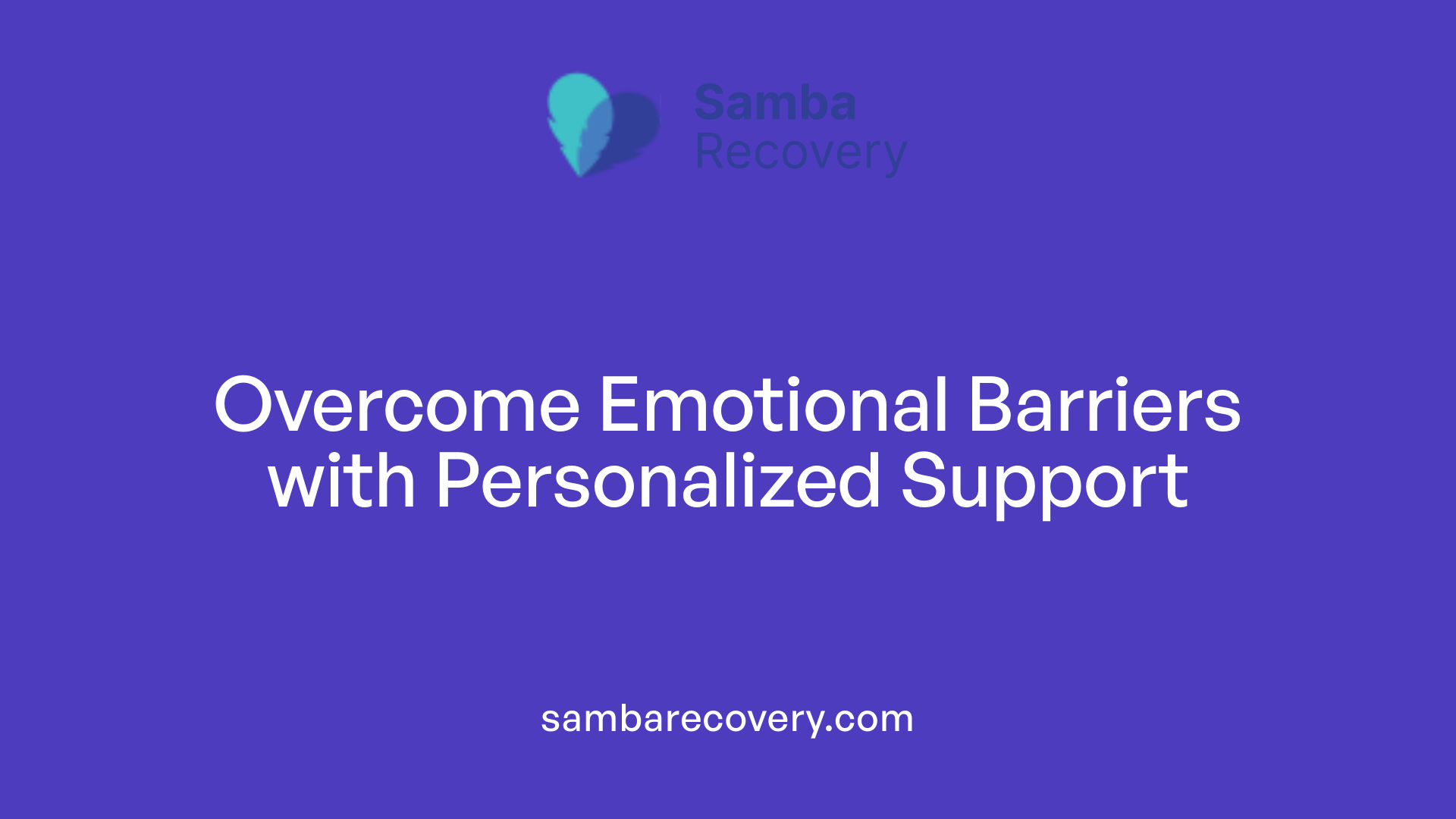Maintaining motivation in long-term recovery
August 1, 2025
Sustaining Your Drive: Strategies for Long-Term Sobriety

Understanding the Importance of Motivation in Recovery
Maintaining motivation is pivotal in the long journey of addiction recovery. It acts as the engine that drives individuals to stay committed, overcoming hurdles, and continuously practicing healthy behaviors. Recognizing what fuels recovery efforts—whether internal desires or external supports—sets the foundation for sustained success.
The Role of Psychological Factors and Personal Convictions

Why is maintaining motivation crucial for long-term success in addiction recovery?
Maintaining motivation is vital for lasting sobriety because it helps individuals stay dedicated to their recovery journey despite setbacks or challenges. Motivation acts as the driving force that encourages ongoing engagement with treatment programs, healthy routines, and self-care practices.
Persistent motivation prevents relapse by fostering resilience and perseverance. It empowers individuals to push through difficult days, remind themselves of their personal reasons for quitting, and celebrate small victories along the way. Whether the motivation is intrinsic—such as the desire for health, improved relationships, or self-esteem—or extrinsic, like support from loved ones or accountability from recovery groups, sustaining this drive is essential.
Strategies like setting realistic goals, acknowledging milestones, and building a strong support network reinforce ongoing motivation. These approaches help individuals remain focused on their recovery goals and build confidence that change is possible. Ultimately, strong motivation acts as the resilient engine that sustains long-term sobriety, enabling individuals to navigate challenges and maintain their new, healthier lives.
Building a Routine and Celebrating Progress

How do daily routines contribute to stability during recovery?
Establishing a structured daily routine provides a sense of order and predictability that is crucial in the recovery process. Routines help reduce anxiety and create a stable environment by minimizing uncertainties and triggers that could lead to relapse.
A typical daily schedule often includes dedicated time for self-care, physical activity, reflection, and engagement with support groups or therapy. Such consistency promotes emotional well-being and reinforces healthy habits.
Why is celebrating milestones and small wins important?
Recognizing and celebrating progress, whether big or small, boosts motivation and reinforces commitment. Celebrations serve as positive reinforcement, helping individuals visualize their growth and resilience.
Milestones can be achieving a week without substance use, attending a group meeting regularly, or maintaining a healthy routine over a set period. Acknowledging these achievements builds confidence and motivates continued efforts.
How do structured goals and progress tracking support recovery?
Setting clear, achievable goals guides individuals through their recovery journey by providing a concrete roadmap. Goals might include abstinence targets, employment goals, or improvements in relationships.
Tracking progress—through journals, apps, or regular check-ins—allows individuals to see tangible evidence of their efforts. This process fosters accountability, helps identify areas needing adjustment, and keeps motivation high.
Effective methods to sustain motivation during long-term recovery
Maintaining motivation over the long haul involves both internal and external strategies. Client-centered techniques like motivational interviewing enhance intrinsic motivation by helping individuals explore and resolve ambivalence.
Long-term goals should be meaningful, such as rebuilding trust, improving health, or achieving personal growth. Celebrating milestones along the way reinforces a sense of accomplishment.
Building a robust support network is essential. This network includes trusted friends, family, community recovery groups, and professionals who offer encouragement, accountability, and emotional support.
Engaging in healthy lifestyle activities—exercise, balanced diet, mindfulness practices—support physical and emotional resilience, enhancing motivation.
Participation in community activities and employment opportunities can boost self-esteem and sense of purpose, making sobriety more rewarding.
Creating a structured daily routine, avoiding known triggers, and seeking ongoing professional assistance when needed are vital for maintaining motivation and preventing setbacks.
How can individuals maintain and boost motivation throughout recovery?
Celebrating small milestones, setting realistic goals, and tracking progress help reinforce a sense of achievement.
Developing a strong support network, including community groups, family, and therapy, sustains emotional bolstering.
Routine activities like exercise, meditation, and journaling support mental health and resilience.
Recognizing signs of waning motivation—like complacency or frustration—and proactively adjusting strategies are critical.
Employing positive affirmations, motivational interviewing, and counseling can further strengthen internal motivation.
Understanding that motivation can fluctuate, individuals need adaptable approaches to foster ongoing engagement and commitment.
Building motivation is an ongoing process that involves nurturing internal drives while leveraging external supports to sustain long-term sobriety.
The Power of Goal-Setting and Self-Regulation

What role do goals and self-regulation play in maintaining motivation during recovery?
Goals and self-regulation are central to successful recovery because they offer structure, focus, and a feeling of purpose. When individuals set clear, targeted objectives, they can better monitor their progress and celebrate small victories, which fuels ongoing motivation.
Using specific tools like SMART goals—Specific, Measurable, Achievable, Relevant, and Time-bound—ensures that recovery targets are realistic and attainable. This clarity helps reduce feelings of frustration and keeps individuals committed to their journey.
Self-regulation skills are equally vital. They empower individuals to manage their emotions, resist cravings, and stay on track during tough times. For example, techniques such as journaling progress or practicing mindfulness enhance self-awareness and emotional control.
Moreover, emotional transfer plays a role in maintaining motivation. When goals resonate personally—such as improving health, rebuilding relationships, or gaining independence—they become more meaningful and increase emotional investment. This helps sustain effort during setbacks.
Interventions like professional counseling, peer support groups, or self-care routines bolster self-regulatory abilities. These strategies help people respond adaptively to challenges, making it easier to maintain resilience.
In the long run, effective goal-setting and self-regulation foster lasting habits that support behavioral change. They turn recovery from a temporary phase into a sustainable lifestyle, reducing chances of relapse, and promoting overall well-being.
| Aspect | Impact | Additional Details |
|---|---|---|
| Goal Setting | Provides direction and motivation | Regularly reviewing and adjusting goals sustains engagement |
| Self-Regulation Skills | Enables overcoming temptations and setbacks | Techniques include mindfulness, journaling, and emotional awareness |
| Emotional Transfer | Converts personal meaning into motivational energy | Activities like visualizing success or recalling personal reasons for recovery |
| Support Strategies | Reinforces motivation and skill development | Professional guidance, support groups, and self-care routines |
Understanding and integrating goal-setting with self-regulation tools create a resilient framework. This foundation supports sustained motivation, encourages positive habits, and ultimately ensures long-lasting recovery.
Utilizing Resources and Support Systems Effectively

What practical tools and resources can support sustained motivation in recovery?
Recovery is an ongoing journey, and having the right practical tools can make a significant difference in staying motivated. One well-established resource is SMART Recovery, a program that offers structured worksheets and techniques such as the Change Plan, Cost Benefit Analysis, and Disputing Unhelpful Beliefs. These tools help individuals understand their urges, identify triggers, and develop achievable goals.
In addition to structured programs, incorporating healthy coping skills like meditation, regular exercise, and engaging in hobbies provides emotional stability. These activities help manage stress and reduce cravings, making it easier to maintain sobriety.
Building a strong support network is crucial. Support groups such as 12-step programs, therapy sessions, and peer networks offer encouragement, accountability, and shared experiences that reinforce motivation. Celebrating small successes and setting realistic goals further boost confidence and perseverance.
Holistic approaches like mindfulness practices, proper nutrition, and addressing co-occurring mental health issues also play vital roles. They enhance overall well-being, which is essential for sustaining motivation over the long term.
How can individuals maintain and boost motivation throughout recovery from addiction?
Maintaining motivation requires active engagement and deliberate strategies. Celebrating each milestone, no matter how small, affirms progress and fuels continued effort. Setting achievable goals and tracking progress create a clear sense of purpose.
Engaging with a strong support network—including community groups, family, friends, and professionals—provides ongoing encouragement and accountability. Developing a routine that incorporates therapy, social activities, and self-care ensures a stable structure that bolsters motivation.
Utilizing positive affirmations and motivational interviewing techniques can resolve ambivalence and enhance internal drives. When emotional challenges like fatigue or anger arise, addressing them proactively through counseling or mindfulness techniques can prevent demotivation.
Recognizing signs of decreased motivation—such as complacency or frustration—and responding swiftly with tailored strategies is vital. This might include revisiting goals, seeking new support avenues, or adjusting routines.
Understanding motivation as a dynamic, multifaceted element allows individuals to adapt their approach as they progress through different stages of recovery. Fostering confidence and resilience in this way helps maintain long-term commitment to sobriety.
Resources and Strategies Summary
| Resource/Strategy | Purpose | Additional Details |
|---|---|---|
| SMART Recovery worksheets | Understanding urges and setting goals | Includes Change Plan, Cost Benefit Analysis, Disputing Unhelpful Beliefs |
| Mindfulness practices | Managing stress and cravings | Techniques like meditation, deep breathing, gratitude journaling |
| Support groups (e.g., AA, NA) | Peer support and accountability | Regular meetings, shared experiences, mentorship |
| Physical activity | Mood boost and energy | Endorphin release through exercise, aids emotional stability |
| Goal setting and tracking | Motivational reinforcement | Celebrating milestones, documenting progress |
| Holistic health approaches | Overall well-being | Proper nutrition, sleep, addressing mental health, engaging hobbies |
| Counseling and therapy | Emotional support and coping strategies | Resolving ambivalence, managing setbacks |
| Digital support tools | Immediate assistance and connection | Apps for mindfulness, progress tracking, community forums |
| Community engagement and service | Purpose and community connection | Volunteering, group projects, spiritual activities |
Maintaining motivation is an ongoing process that combines practical tools, emotional support, and healthy habits. By leveraging these resources and strategies, individuals can better navigate the challenges of recovery, stay committed to their goals, and ultimately achieve lasting sobriety.
Strategies for Overcoming Challenges and Emotional Barriers

How do emotional and psychological factors influence motivation during recovery, and what strategies can help manage them?
Motivation in recovery is deeply affected by various emotional and psychological elements. One significant factor is self-efficacy, or the confidence individuals have in their ability to stay sober. When self-efficacy is high, people are more likely to persevere through tough times. Conversely, emotional hurdles like shame, guilt, depression, and anxiety can easily dampen motivation and make recovery seem overwhelming.
Social support also plays a pivotal role. Encouragement from family and friends can bolster confidence, while peer pressure or social circles that promote substance use may challenge motivation. Youths particularly experience fluctuations in motivation influenced by peer influences and social validation.
The individual's readiness to change, often described by the Transtheoretical Model, varies over time. People move through stages—from precontemplation to contemplation, preparation, action, and maintenance—and each stage requires different motivational strategies.
To effectively manage these factors, personalized psychological support is vital. This may involve empathetic counseling, behavioral therapies, and building self-efficacy through small, achievable goals. Fostering a strong social network that promotes positive influences helps keep motivation alive.
Mindfulness techniques and therapy can address emotional barriers by helping individuals become more aware of their feelings and reactions without judgment. These practices improve emotional regulation, decrease stress, and bolster resilience.
Engaging in activities that reinforce personal reasons for recovery, such as reconnecting with loved ones or pursuing meaningful goals, strengthens intrinsic motivation. Celebrating small successes and learning to cope with setbacks as part of the process are also crucial strategies.
Overall, understanding and managing emotional and psychological barriers involves a combined approach: building confidence, providing supportive environments, and incorporating mindfulness and therapy to sustain motivation during the challenging journey of recovery.
Sustained Motivation for Lifelong Sobriety
Maintaining motivation throughout recovery is a multifaceted process that combines the right mindset, supportive environment, and effective strategies. Recognizing the interplay of internal and external motivators, celebrating milestones, and developing goals foster resilience and perseverance. Building strong support networks, practicing self-care, and managing emotional challenges are vital for long-term success. By continuously nurturing motivation, individuals can navigate the inevitable ups and downs of recovery, ultimately achieving lasting sobriety and a renewed sense of purpose.
References
- 5 Tips to Stay Motivated Through the Hard Days - Ranch at Dove Tree
- Reasons to Stay Motivated to Stay Sober
- Motivation for Lasting Change - Centered Recovery Programs
- Maintaining Motivation Throughout Your Recovery Process
- How to Stay Motivated in Sobriety - BrightView
- How to Stay Motivated to Change in Addiction Recovery | VA
- 11 Tips for Staying Motivated in Recovery - Stepworks
About Samba Recovery
Start your treatment today!

Featured Articles
Read the latest addiction news and recovery tips from our blog.
Samba Recovery never miss an opportunity
Substance use may be part of your story, but it doesn’t have to be the rest of it. Sustainable recovery is possible and the best version of yourself is waiting at our Atlanta and Savannah, Georgia addiction recovery centers.
We’ll help you learn that the opposite of addiction is connection. We’ll give you skills to discover your self-worth and show you the tools for a life of hope and promise.
Contact us today!
We accept most major insurances
We partner with most major insurances, enabling you to access premier therapy services.










































































































